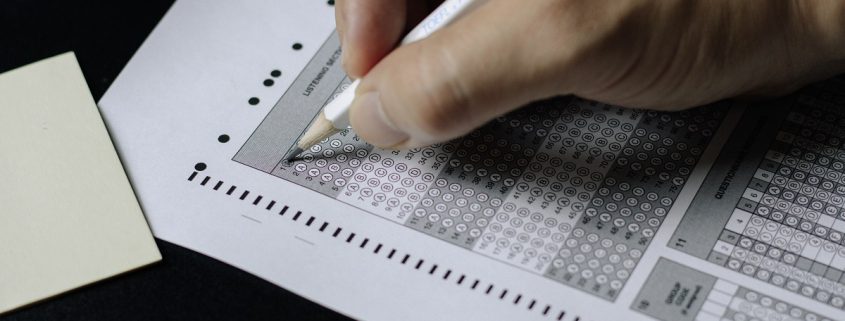The New Computerized SAT: Some Important Questions Remain Unanswered
If you are a teacher, a parent, or a student, you have heard the news that starting in 2024, the on-paper-SAT will be phased out and all American students will only take the test online.
Despite a list of FAQs about the SAT that the College Board has made available online, we still do not know the answers to questions about the new test. Here are some important questions that seem to still be unanswered:
- What about accommodations for students who have reading and other learning disabilities? The College Board states that we shouldn’t worry about this – that extra time will still be made available to students who are able to document that they need it. But how exactly will these new accommodations be awarded, and what will they be? We are still eager for answers.
- Will it still be possible to skip questions and come back to answer them later? This has been an important test-taking strategy for students. The idea was to skip questions that seemed hard to answer, to go on to answer questions that seemed easy, and then to return to the “tough” questions later on. This enabled students to increase their scores. But will the new computerized test allow students to continue to use it? Or will a question “disappear” and become unavailable once a student has skipped it. Again, we would like to know the answer.
- Are the online practice tests currently offered by the College Board in the new 2024 format, or in the old? We believe that they are in the old format for the simple reason that the available online test, like the old SAT version, seems to allot students three hours to complete. The new test will be completed in two hours, not three. So . . . when will the new online test be available as a practice exercise online?
- Will the PSAT only be available online too? Current resources from the College Board state that students who will take the PSAT must register at their schools to take this test – not online. But how will the new PSAT be administered – on paper or online? We are waiting to hear.
One Very Good Thing About the Move Away from Paper
One occasional, but harrowing, mistake was possible on the paper test, and the shift to a computerized test will prevent it. This mistake happened when a student would arrive at a certain point in the test and realize that he or she was answering the wrong question.
In other words, that student would be using a pencil to fill in the little bubble for, say, question 22 and would look down and realize that he or she had just entered the answer for question 21. At that point, panic would ensue. When had that student “gotten off by one” and started to fill in the answers for the wrong questions? He or she would have to retrace steps to figure out when the mis-entering started, then erase answers . . . it was a nightmare.
Now that possibility has been eliminated by the move to an online test. That much we know. But as we write this blog post today, we are waiting for more complete, up-to-date answers to the questions that are on the minds of students, teachers, parents, and everyone else who is counting on this test to help gain admission to college.
Your Students Are Invited to Explore Their College & Career Options with Us . . .
Students who participate in the National Career & College Pathway Study will gain new insights about making educational decisions that align with their interests, passions, and aptitudes. Participants will receive information on college and career opportunities that match their interests.

Resources
Career and College Planning Lesson Plan
Request study materials for your classroom
Related Posts
Should You Take SAT and ACT Prep Classes Online?
Will Standardized Testing Be Another Casualty of COVID?
Why students will still be taking the SAT and ACT during the next college admissions cycle
Now Is the Time to Beef Up Your SAT and ACT Vocabulary
College Aptitude Tests: New Ways to Think about the SAT and ACT










Leave a Reply
Want to join the discussion?Feel free to contribute!